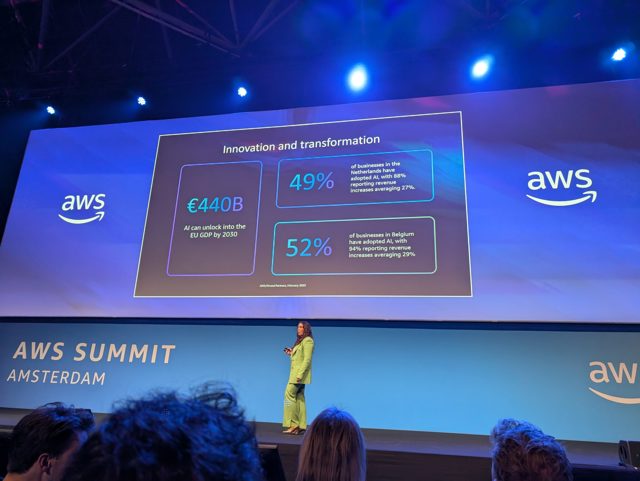< Back to news 


4 December 2023
'We need to preserve digital sovereignty of universities'
Universities are increasingly dependent on commercial providers of digital services and technologies.
This dependence means that the influence of external parties on the digital design of universities is increasing. This in turn can erode academic freedoms of universities and researchers in a variety of ways. This is why the UvA is calling for the preservation of 'digital sovereignty' of public universities. The UvA's Institute for Information Law (IVIR) makes recommendations to preserve that sovereignty.
'When external parties control the digital systems and the data within them, academic freedom comes under pressure,' says Kristina Irion, one of the authors of the study. ‘Problematic dependencies arise when it is costly and difficult to change suppliers or when personal and other data from universities’ digital environment are extracted for suppliers’ economic gains.’
Strategies for collaboration
'At the same time, we don't want to push away the potential of digital developments. Instead, we want to be able to use them in a safe way,' says Irion, 'but that requires better strategies and collaboration across the university sector.'
'At the same time, we don't want to push away the potential of digital developments. Instead, we want to be able to use them in a safe way,' says Irion, 'but that requires better strategies and collaboration across the university sector.'
European Union law increasingly affects universities
Also the European Union can play an important role in promoting academic freedoms in the digital age. 'The EU is exerting increasing influence on how universities and researchers conduct research. Open Science policy and new digital legislation directly affect research activities. That legislation is now fragmented, complex and not always drafted with scientific research in mind. This makes compliance with that legislation unnecessarily complex for universities and academic researchers.'
Also the European Union can play an important role in promoting academic freedoms in the digital age. 'The EU is exerting increasing influence on how universities and researchers conduct research. Open Science policy and new digital legislation directly affect research activities. That legislation is now fragmented, complex and not always drafted with scientific research in mind. This makes compliance with that legislation unnecessarily complex for universities and academic researchers.'
Crucial steps for UvA
The UvA has taken crucial steps to protect academic values. The first step in this is that UvA has adopted a digital agenda for itself. This agenda gives direction to the development of digitisation at the UvA in line with public values. ‘We have mapped out the values relevant to digitisation. We also experimented with ways to discuss values. We will incorporate these values, first as a pilot, into decisions we make in our digital infrastructure’, Information Manager Frank van Tatenhove says.
The UvA has taken crucial steps to protect academic values. The first step in this is that UvA has adopted a digital agenda for itself. This agenda gives direction to the development of digitisation at the UvA in line with public values. ‘We have mapped out the values relevant to digitisation. We also experimented with ways to discuss values. We will incorporate these values, first as a pilot, into decisions we make in our digital infrastructure’, Information Manager Frank van Tatenhove says.
Another step is this research project, which was commissioned by the UvA Executive Board to the benefit of the European university sector. Beyond this UvA supports sector-wide collaboration with Dutch and European organisations representing public universities and SURF, the collaborative organisation for IT in Dutch education and research. Irion: 'After all, this is an issue that affects all universities.'
This article was published by de UvA.
The image was generated by the University of Amsterdam using Adobe Firefly (keywords: shallow brain architecture).
The image was generated by the University of Amsterdam using Adobe Firefly (keywords: shallow brain architecture).
Vergelijkbaar >
Similar news items

April 16, 2025
AWS: Dutch businesses are adopting AI faster than the European average
New research from AWS shows that Dutch businesses are rapidly adopting AI—at a rate of one new implementation every four minutes, well ahead of the European average.
read more >

April 16, 2025
Submit your nomination for the Dutch Applied AI Award 2025
Do you know or develop an innovative AI application? Submit it now for the 2025 Dutch Applied AI Award, presented at the Computable Awards.
read more >

April 16, 2025
UK government tests AI to predict murders
The UK government is developing an AI system that could predict who is most likely to commit a serious crime. Critics call the project dangerous and discriminatory.
read more >